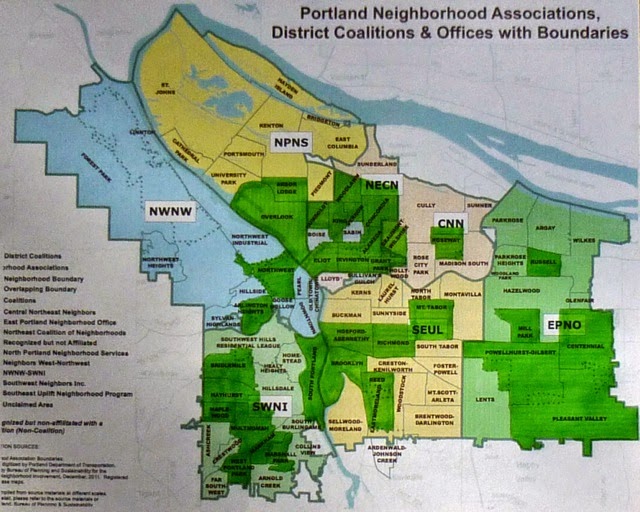
As East Columbia and South Burlingame add their support to the demolition/development resolution, United Neighborhoods for Reform prepares to present its ideas for saving affordable housing and improving new construction in Portland at City Hall (right) this Wednesday.
The Details
What: United Neighborhoods for Reform presents its demolition/development resolution and responds to recommendations proposed by the Development Review Advisory Committee, or DRAC
When: 3:30 p.m. Wednesday, Dec. 17
Where: Portland City Hall, 1221 S.W. Fourth, Council Chambers
Why: So we can save affordable housing, see more beneficial development, and—
 |
(I swiped this off the blog of Dr. Tanya Lyn March, which chronicles
the superworthy effort to save Northwest District's Ballow & Wright building.) |
By the way, the DRAC recommendations, already a mixed bag, not only call for reduction of the optional 120-day delay to 30 days (it's hard enough trying to buy a house as an individual in that amount of time, much less marshal a neighborhood effort), but they propose requiring that an extension request be signed by both the requester
and the property owner or the owner's agent. That's another big change to a bit of code that's been on the books for 25 years and has actually saved houses, per its intent.
Given how few of the developers combing Portland are based in Portland or live in Portland, can you imagine how easy it would be tracking them down to sign a request for a demo delay they probably don't want to honor?
 |
| Step up and sign up if you have something to say on Dec. 17. |
|
If that signature can't be procured in a timely manner, the proposed added language to code is clear on what happens: "
If the request for the extension is not signed by the property owner or the property owner’s agent, no extension will be granted."
Now that's DRAConian.
We hope you'll make it to City Hall on Wednesday to show support for the neighbor voice in development decisions that affect us all.







